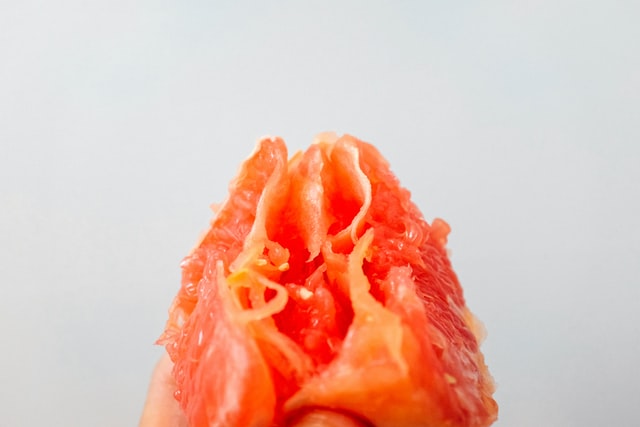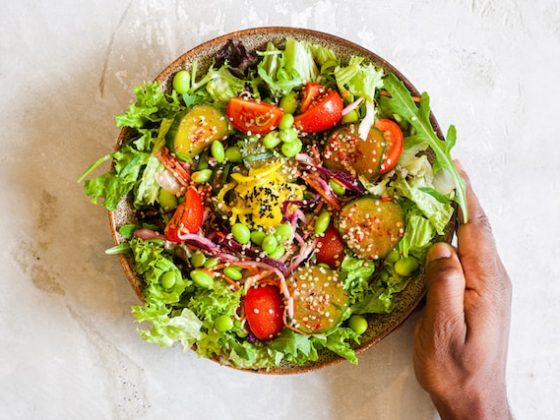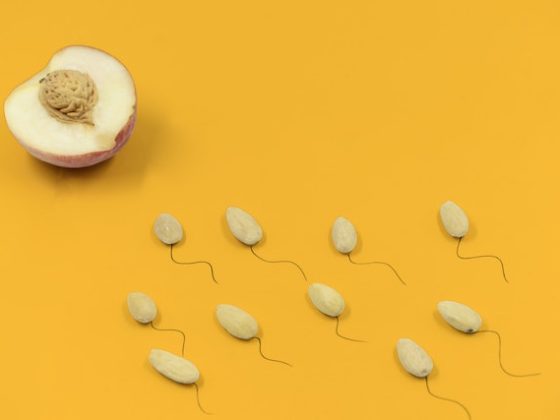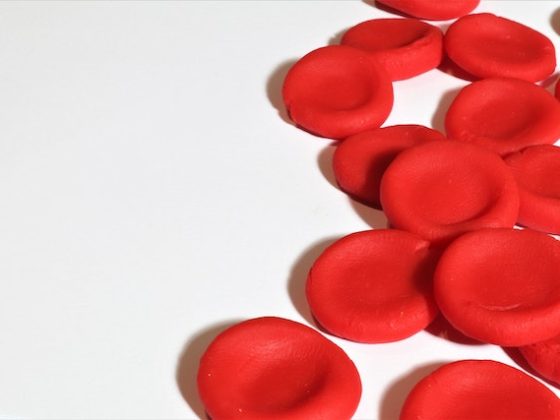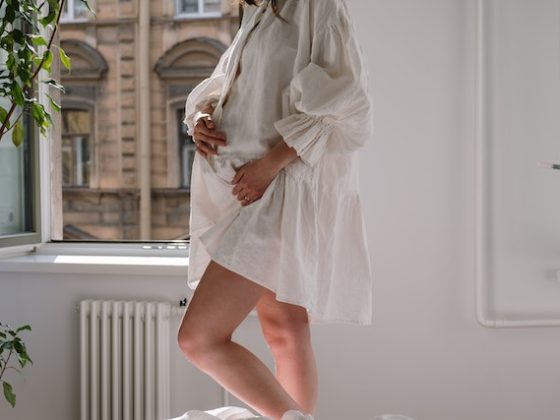Hey there! This post may contain affiliate links. As an Amazon Associate, I earn a teensy commission from qualifying purchases when you buy through these links (at no additional cost to you). For more info, please check the full disclaimer.
Pregnancy is a blessing for mothers, whether it’s your first or fifth time! But despite taking lots of care, many women experience an itchy vaginal yeast infection during pregnancy. The risk of fungal vaginal infection increases significantly during the 2nd and 3rd pregnancy trimesters. To counter the effects, you may want to try different pregnancy yeast infection treatments immediately.
According to the Centers for Disease Control and Prevention (CDC) statistics, 75% of women suffer from a yeast infection at some point in their life.
If you are expecting a baby and have a yeast infection too, we can help you learn about the risks of yeast infections in pregnancy, its symptoms, causes, and the best pregnancy yeast infection treatments you might want to begin today.
What is a Vaginal Yeast Infection?
Vaginal yeast infections occur when the natural levels of yeast and acid present in the vagina are imbalanced. This change in the environment allows yeast to overgrow in the genital region, resulting in an uncomfortable itching, pain, and discharge.
The most common yeast species responsible for this infection is Candida Albicans. Hence the name, Vaginal Candidiasis. Yeast infections may also occur in other parts of the body, such as toes, fingernails, and mouth. But mostly, vaginal yeast infection is quite frequent during pregnancy.
The CDC estimates that around 1.4 million patients visit hospitals yearly for vaginal yeast infections in the United States. About 20% of them are standard cases, whereas the numbers increase to 30% when pregnant.

That’s a huge scary number, right?
The chances of getting a yeast infection during pregnancy increase because of the various internal changes going on in the body.
If this is an issue you’ve been struggling with, it’s best to consult a doctor on time. The goal is to recognize the early signs and provide easy and practical pregnancy yeast infection treatments without delay.
Read More: Yeast Infection in Pregnancy: Is it serious?
What are the Causes of Yeast Infections?
It’s essential to know the causes of fungal vaginal infection before getting to the yeast infection treatments in pregnancy. During these months, the woman’s body flora changes significantly as her body goes through several changes, all at once.
So naturally, sometimes, it becomes difficult to keep the chemical balance in the normal range in your vagina. This imbalance leads to the overgrowth of yeast, causing an infectious attack.
You may notice a vaginal fungal infection because of the following reasons:
- Low immunity during pregnancy
- Any previous chronic disease
- Diabetes with high blood sugar levels
- Taking steroids or antibiotics, birth control or hormones pills
- Hormonal fluctuations that come before period or with pregnancy
⚠️ Diabetes
⚠️ Hormone imbalance
⚠️ Lack of hygiene
⚠️ Strong drugs or antibiotics
⚠️ Low immunity
Read our blog for best remedies against #yeast infection!
Vaginal yeast infection can occur at any age. But research shows it is more common in women at a later age, typically nearing menopause. There are many factors responsible for this, such as physiological changes because of aging and existing ailments.
Read More: 14 Early Warning Signs of Diabetes
What are the Signs of Pregnancy Yeast Infection?
In case of a vaginal fungal infection, you’ll most likely have uncomfortable pain and itching in the vulva and vagina. The vulva may appear swollen and red. You may also have weird vaginal discharge, which may be white, cloudy, or similar to cottage cheese. Some other early signs of pregnancy yeast infection may include:
- Terrible smell from discharge
- Burning sensation during sex
- Painful urination
- Irritation and soreness in the genital region
- Redness or rash in the vagina lips
Read More: First Trimester Pregnancy Guide – Everything You Need to Know
How to Prevent Pregnancy Yeast Infections
Before we talk about pregnancy yeast infection treatments, it also helps to know how to prevent this condition from occurring again. Below are “do’s and dont’s” to avoid fungal vaginal infections when pregnant.
Do’s:
- Wear breathable and loose cotton underwear and dresses.
- Change your swimming costume and workout dresses immediately.
- Wash around the genitals thoroughly and regularly using hypoallergenic and unscented soap.
- After passing stool or urinating, wipe or wash from front to back.
Don’ts:
- Never use scented toilet paper and feminine hygiene sprays inside the vagina.
- Do not use tampons or sanitary pads that have deodorant.
- Restrict sugar intake as it helps in yeast growth.
- Never use vaginal creams unless directed by your doctor.
- Avoid vaginal douching.
Read More: How to Avoid Birth Defects in Pregnancy

8 Must-Try Pregnancy Yeast Infection Treatments
If you do not treat early signs of pregnancy yeast infection right away, the fungal effects may pass to the baby’s mouth at delivery time, also called oral thrush. Usually, the go-to n yeast infection treatments in pregnancy focus on providing topical vaginal fungal creams.
However, it’s best not to use any vaginal creams without consulting a doctor because they may worsen your condition.
Another option for you is to go for home remedies and lifestyle changes.
Yes, it may take some days to completely get rid of the infection. But with the perfect combo of medication and home remedies for yeast infection treatment in pregnancy, you can prevent recurring fungal infections. Likely, they might even offer a permanent solution!
Following are a few tips to cure pregnancy yeast infection.
1. Make use of apple cider vinegar
Apple Cider Vinegar (ACV) is a miracle product for many reasons.
For starters, it can help with illnesses like ulcerative colitis, bad cholesterol, acid reflux, etc. Similarly, if you face early signs of pregnancy yeast infection, you should go for a comforting apple cider vinegar bath. You might find relief from the irritation thanks to the fantastic anti-microbial properties of ACV.
Another way to consume this solution is by adding it to your drinks. Mix a little amount into a glass of water, and you will see effective results. It’s one of the safest pregnancy yeast infection treatments. However, avoid drinking ACV excessively, as it may disturb the vagina’s pH balance.
2. Apply pure coconut oil topically
The topical application of coconut oil is one of the most potent pregnancy yeast infection treatments. It has remarkable antifungal properties helpful in killing Candida. Per a 2021 study published in the Journal Obgin Emas, virgin coconut oil has proven helpful against fungal colonies in the vagina.
Thankfully, there are no side effects of using coconut oil during pregnancy. Be sure to buy organic and pure coconut oil. You can apply it directly to the affected area and leave it on for a few minutes before washing it thoroughly with water.
Read More: 11 Best Home Remedies to Get Rid of Bacterial Vaginosis
#yeast #hygiene #womenshealth
3. Consume unprocessed honey
If you’re looking for easy pregnancy yeast infection treatments at home, this one’s a must-try. Honey is an excellent cure for many diseases. When you apply honey to your vagina, it helps reduce the pH level and ultimately stops fungus growth.
You can also add some herbs for best results, such as essential oils of lemongrass and eucalyptus. These herbs have antifungal properties making them a powerful solution to fight the fungus.
However, caution is necessary when using honey for treating vaginal fungal infections. You may not want to go overboard with honey as it could increase Candida.

4. Feel cool down there with aloe vera
Many women often overlook the benefits of using the aloe vera plant as a promising pregnancy yeast infection treatment. Aloe vera has excellent anti-fungal compounds that counter yeast overproduction in the vagina, helping you enjoy a relaxing pregnancy journey.
You can either safely apply pure aloe vera gel around the vagina thrice a day to ease the irritation or drink up aloe vera juice daily to eliminate fungal after-effects.
5. Try boric acid vaginal suppositories
According to research, the application of boric acid helps treat early signs of pregnancy yeast infection in almost 70 percent of women. It’s one of the most traditionally acclaimed and safe yeast infection treatments for pregnancy.
Boric acid capsules are quite effective against recurring fungal infections in the vagina. The highly antiseptic and antifungal properties make the boric acid suppositories excellent for pregnancy yeast infection treatments.
You can purchase vaginal suppositories filled with boric acid. These are oval-shaped, solid capsules that are placed inside the vagina. The body temperature warms them up and becomes liquid in a few minutes. Per CDC, you should use a vaginal suppository filled with 600mg of boric acid once daily for at least 14 days to treat fungal vaginal infections.
However, while boric acid offers quick relief, it may also pose mild side effects, such as watery discharge, a burning sensation, and redness.
Read More: 15 Best Herbal Teas to Get Pregnant Naturally
6. Consume Greek yogurt daily
Yogurt is a popular probiotic that not only aids pregnancy heartburn but offers potent benefits in fighting against fungal infections. A study conducted in 2015 elaborated that a mixture of yogurt and honey, when applied topically, holds powerful qualities against vaginal fungal infections.
Plain Greek yogurt is one of the best pregnancy yeast infection treatments you can try at home. It consists of live bacteria known as Lactobacillus acidophilus which help keep the vagina healthy and treat yeast overgrowth.
Simply apply a small amount of yogurt around the vagina or the vulva. Add a bit of honey for increased benefits. But ensure the yogurt doesn’t contain any fruit, flavoring, or added sugar.
7. Apply tea tree oil to infected region
You can also use tea tree oil. It’s among the most popular yeast infection treatments in pregnancy that helps get rid of viruses, fungi, and bacteria.
According to a 2015 study published in Phytotherapy Research, using a vaginal suppository filled with tea tree oil or simply applying this essential oil can be a viable solution against vaginal fungal infection, thanks to its remarkable antifungal properties. It typically works best against Bifidobacterium animalis growth.

Make sure you mix it with a carrier oil, such as coconut or jojoba, before it makes contact with the skin. The best option is to buy already prepared tea tree oil vaginal suppositories. If your skin is sensitive, you may want to steer clear of tea tree oil as it could cause discomfort.
8. Make use of garlic benefits
The benefits of raw garlic for women’s health are endless. Besides being an integral food for your heart health, garlic also works as a superb yeast infection treatment in pregnancy. This potent bulb has antibiotic and antifungal properties, which help finish off fungal growth in the vagina.
You can either consume raw garlic or add it to your daily meals to prevent the overproduction of yeast. Additionally, garlic suppositories are also recommended as useful pregnancy yeast infection treatments.
9. Start taking various supplements
Supplements are an effective remedy for vaginal yeast infections in pregnancy.
For example, probiotics are good bacteria already present in your body, and you can further boost their activity through supplements. You may want to find probiotic supplements containing Lactobacillus for the best pregnancy yeast infection treatments.
Similarly, Vitamin E and iron deficiency can also put you at high risk of such infectious attacks. Test Vitamin E and iron supplements as they perform well against vaginal fungal infections. They can help strengthen the immune system and prevent painful symptoms.
Oral and even topical Vitamin E has incredible anti-inflammatory properties. Simply use the Vitamin E oil for about 1-2 weeks, twice daily for best results.
Bottomline
I hope you liked these fantastic pregnancy yeast infection treatments and home remedies. All of them are pretty potent and offer superb results. However, the results depend on the infection’s severity and how well your immune system is willing to fight the fungal infection in the vagina during pregnancy. Before choosing an option for recurring vaginal infections, it’s best to consult your doctor about prevention and natural remedies.
References:
- https://pubmed.ncbi.nlm.nih.gov/26235937/
- https://bmcpregnancychildbirth.biomedcentral.com/articles/10.1186/s12884-020-02963-
- https://www.ncbi.nlm.nih.gov/pmc/articles/PMC2654841/
- https://bmcresnotes.biomedcentral.com/articles/10.1186/s13104-019-4793-z
- https://www.frontiersin.org/articles/10.3389/fmicb.2021.816161/full
